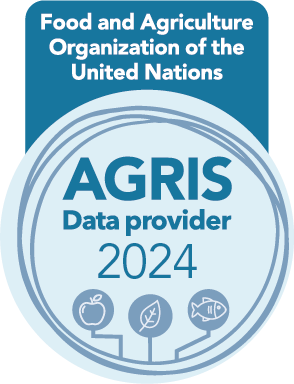Address: 17 Naberezhnaya Severnoy Dviny, Arkhangelsk 163002 Russian Federation. Northern (Arctic) Federal University named after M.V.Lomonosov. Office 1425
Phone / Fax: (818-2) 21-61-18 Archive |
 These works are licensed under a Creative Commons Attribution 4.0 International License. Yu.V. Lebedev Complete text of the article:Download article (pdf, 0.7MB )UDС634.09DOI:10.17238/issn0536-1036.2015.1.9AbstractNow forest ecosystems usually are estimated only by the forest resources and some ecologi-cal functions, and the environment- generating potential is estimated by the set factors. The methodology of forest ecosystems estimation includes the principles of construction of the forest goods set in their dynamics of forest-forming process; forms of representation of eco-nomic characteristics (indicators, criteria, effects) taking into account their spatio-temporal dynamics; ways of definition of total cost of forests sites depending on their environmental and social and economic importance and legal status. Main principles of forest ecosystems estimation: representation of a forest site as object of the environmental and economic esti-mation; formation of natural indicators set of the forest goods (resources and functions); the substantiation of economic equivalents of natural indicators of the forest goods; construc-tion of complex estimation criterion of a forest site. Forest ecosystems at their estimation are considered from three positions: as natural phenomenon; as a part of economic sphere; as an element of legal system of the state. As the natural phenomenon forests at an estima-tion are represented in the form of ecological system. As an element to economic sphere they are considered in the form of a source of various natural goods, developing on certain regularities of forest-forming process taking into account anthropogenous factors. Criterion of forest ecosystems estimation is the discounted quantity of the rental income in the form of difference between total potential economic benefit of all forest goods for a long period of time and expenses of forestry on reproduction, preservation and protection of forests. The total effect is calculated considering dynamics of the spatio-temporal functional con-nections of separate components and forest sites, character of nature- and forest- manage-ment and discounting of monetary quantity. The scheme of construction of an economic estimation of forests corresponds to their division on operational and protective, on protec-tive categories, on types of especially protective forests sites and forests in especially pro-tected natural territories. Considered methodology, principles and practice of the environ-mental and economic estimation of forests allow to define more authentically, in compari-son with existing approaches, the public importance of forest ecosystems. Such estimations are a scientific basis of the permission (connection) of short-term interests of the individual forest-, nature users in income maximization and long-term preferences of a society in preservation of nature-resource potential of forest ecosystems.AuthorsYu.V. Lebedev, Doctor of EngineeringAffiliationUral State Forest Engineering University, Sibirsky tract, 37, Ekaterinburg, 620100, Russia; е-mail: taranova@ukr.netKeywordsforest resources, environment-generating functions, social functions, long-term effect, spatial consequences, time dynamics, discounting.References1. Bol'shakov V.N., Korytin N.S., Kryazhimskiy F.V., Shishmarev V.M. Novyy pod-khod k otsenke stoimosti bioticheskikh komponentov ekosistem [New Approach to Estimat-ed Value of the Biotic Components of Ecosystems]. Ekologiya, 1998, no. 5, pp. 339–448. 2. Kozhukhov N.I. Ekonomika vosproizvodstva lesnykh resursov [Reproduction Economy of Forest Resources]. Moscow, 1988, 262 p. 3. Lebedev Yu.V. Otsenka lesnykh ekosistem v ekonomike prirodopol'zovaniya [Evaluation of Forest Ecosystem in the Economy of Nature]. Ekaterinburg, 2011, 574 p. 4. Lebedev Yu.V., Kopylova Yu.Yu., Potravnyy I.M. Uchet faktora vremeni pri otsenke dolgovremennogo effekta sredoformiruyushchikh funktsiy lesa [Time Factor in the Assessment of Long-Term Effect of Environment-Forming Functions of Forest]. Ekonomika prirodopol'zovaniya, 2003, no.1, pp. 32–43. 5. Moiseev N.A., Moiseeva T.I. O vzaimootnosheniyakh cheloveka, obshchestva i prirody [On the Relationships Between Human, Society and Nature]. Lesnoe khozyaystvo, 2009, no. 1, pp. 8–14. 6. Petrov A.P. Lesnoy kadastr i stoimostnaya otsenka lesnykh resursov [Forest Ca-daster and Forest Valuation]. Lesnoe khozyaystvo, 1996, no. 2, pp. 11–16. 7. Tishkov A.A. Biosfernye funktsii prirodnykh ekosistem Rossii [Biospheric Func-tions of Natural Ecosystems in Russia]. Moscow, 2005, 309 p. 8. Turkevich I.V. Kadastrovaya otsenka lesov [Cadastral Valuation of Forests]. Le-snaya promyshlennost', 1977, 318 p.Methodology, Principles and Practice of Forest’s Ecosystems Estimation |
Make a Submission
Lesnoy Zhurnal (Russian Forestry Journal) was awarded the "Seal of Recognition for Active Data Provider of the Year 2024" INDEXED IN:
|
||||||||||||||||||||||||||||||||||
|
|

|
|
|
|
|
|
|
|
|
|
|
|
|

|
|
|
|
|
|
|
|
|
|
|
|
|
|
|
|
|

|

|
|
|
|
|
|
|
|
|
|
|
|
|



